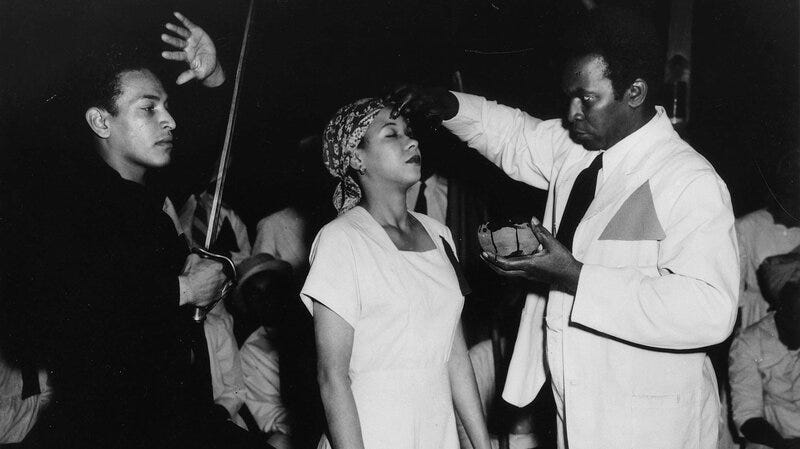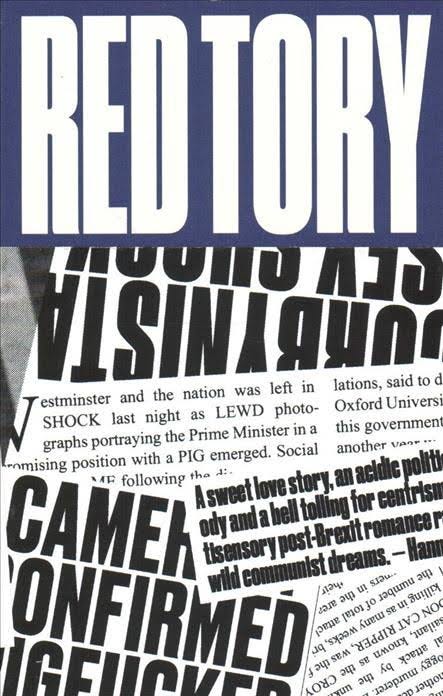Read Part 1.
I wanted to open this entry with an engaging, maybe even titillating, example of the use of mind-controlling drugs. Like, the obvious choice would be MKUltra, right? The CIA project that dosed psychoactives like LSD to nonconsenting test subjects because the feds wanted to figure out how to manipulate Soviet (not to mention American) spies? (While these test subjects were often marginalized people, like prisoners, mental patients, and sex workers, they were also CIA employees and other government agents, some of whom were blackmailed into cooperation. Nobody was safe!) Titillating stuff, but fairly well-known at this point.
I soon realized that limiting the definition of “mind-controlling drug” to clear-cut situations like MKUltra was kind of tricky. For example, when the Spanish colonized South America in the 16th century, they forced enslaved Incan people to more efficiently mine gold by ingesting coca—a sacred plant prized for reducing hunger, thirst, and fatigue, not unlike a piping-hot cup of coffee. This isn’t the same kind of mind control that the CIA created MKUltra to implement, but it is the use of a chemical substance, in tandem with other kinds of coercion, to control human behavior. Those enslaved Incans weren’t golems or zombies—the latter modern monster originating as a powerful metaphor for colonialist slavery1—but their body/minds were not entirely theirs, and the substances they were forced to use were a part of this manipulation.
The more I thought about it, the more clear it became that “mind-controlling drugs” resists easy definition; like I said last week, drugs and drug use are contextual, and in the context of “mind control” (as in others), not even coercion is cut and dried. Conspiracy theories about chemicals modifying our mind/bodies to make us more easy to subjugate abound, and we must wonder what fears surrounding water fluoridation, chips in our vaccines, and so-called ROGD can tell us—as well as why the combined neglect + straightup psyop shit behind phenomena like the crack and opioid epidemics doesn’t garner the same timbre of interest.
This wouldn’t be a DAVID entry if I didn’t suggest SM as one means of conceptualizing the slippage between drug and hack, control and freedom, consent and coercion. Like power exchange, and sexuality more generally, “mind-controlling drugs” exist in contexts wherein coercion and consent are not always easy to parse out. We choose to take drugs, are “driven to” drugs, escape by drugs. Drugs are pushed, available, ambient. As chemicals, hormones, and assorted synthetic substances, drugs are leeching into the water, injected into the meat, writhing in the microplastics. In their omnipresence, examining them inevitably lands you at one of the many intersections of power and desire.
“I started thinking back to those moments when chemical highs can switch the way you understand and relate to the world, and the political changes that can produce,” says Huw Lemmey in an i-D interview regarding his gorgeous novel, Red Tory: My Corbyn Chemsex Hell. “When I started the book I was having a conversation with a friend about what he called ‘the psychotropic edge’—whether stuff like the second summer of love (in 1988/89) really disarmed the burgeoning hooligan movement's alliance with the far right in England through the massive introduction of ecstasy into working-class culture.”
Set in London shortly after the UK’s 2015 general election, Red Tory follows Tom Buckle, a white gay Labour careerist whose ambitions are threatened by his newfound enthusiasm for chemsex parties. After an encounter with Otto, a German anarchist, fizzles before it can spark, Tom is turned on to a mysterious hallucinogenic during one of his benders. As his night life takes more and more precedence over his straight life, Tom vacillates between his colleagues on the center-right and his potential comrades on the far left, pushed and pulled by the tension between his current political commitments and his nascent appetites for pleasure, connection, and solidarity.
This mystery drug is, of course, too good to be true. After catching wind of a leftist plot to reproduce the summer-of-love phenomenon with Love Drug 3.0, right-wing militants have developed a plan to capture the leftist formula and manufacture their own party drug, one that will inspire its users not to open their minds, but to close them. As one of their fascist scientists explains, “Where the Cultural Marxists use this drug to stimulate an uncontrollable political consciousness…we will chemically restore the natural family balance, and in turn create great hallucinogenic visions of the pure ethno-state!”
Not that Tom is aware of these insurgencies, at least at first, though as he watches his dealer take a snort of the fascist formula, we’re provided with unmistakable foreshadowing: In the dealer’s eyes, Tom sees “a furious and passionate anger, and something modern, a speed and excitement…diesel trains bursting into light from a darkened tunnel, men in hi-viz sorting men from women and children, a single spot-light scanning from a rocket destroyer across 100 miles of blood-black sea.” Unlike the anti-fascist Otto, who fights neoliberal numbness with direct action (“The city could bruise so hard that a dignified retreat to anesthesia seemed a strategic defense.”), Tom’s already-incoherent sense of self disintegrates as the fashy drug’s hallucinations creep into a political reality that is increasingly chaotic and violent. Overwhelmed by the pressures of centrism (hypocrisy is thirsty work), Tom returns evermore to that blood-black sea; to the hallucinogenic fantasies of Roman centurions and porcine politicians; to the narcotic sensations of bottom as specimen, victim, dinner, hole. All that stands between him and doom is the cautious regard of a sexy anarchist.
Will Tom be brought to our side, or will he be absorbed into the increasingly right-wing “progressive” party of his childhood dreams? Heart or mind? Or put another way, body or mind? The fascists’ chemical warfare co-opted the formerly liberatory trajectory of the “drug-addled” gays because they knew the revolutionary effects it can inspire. “The more sex [Tom] had, the more distant he felt from the Party, from the centrist daddies who had been leading his hand—the closer he felt to the boys, to the binmen, to the shifting lights at night, the halos.” With its drug orgies, Red Tory offers a fictional riffing on the sexual solidarity of Samuel Delaney’s Times Square Red, Times Square Blue; as Chip writes, “Given the mode of capitalism under which we live, life is at its most rewarding, productive, and pleasant when large numbers of people understand, appreciate, and seek out interclass contact and communication conducted in a mode of good will.”
At times literary, contemporary, spy thriller-y, and psychedelic (I mean this in the best way), the preponderance of Lemmey’s writerly flexing is in the fuck. With the exception of one of Tom’s final hallucinations on a beach—my favorite scene, I think, in terms of Lemmey’s transportive virtuosity—his chemsex fugues are lurid, feverishly lucid, vivacious “political pornography,” as some of Lemmey’s reviewers dub it.
Indeed, were Tom Buckle fucking women rather than men—and more specifically, conceiving of this behavior as indicative of a stable personal and political identity—this would obviously be a very different kind of novel. Red Tory’s difference is in its gayness, but just as gay sex is different than normal sex, so does Lemmey recognize chemsex as different from normal sex. (Grace Lavery: “Str8 thought, recoiling against the erotic drive, attempts to split desire into different kinds; it understands queerness as a kind of desire rather than as a coalitional politics founded on the fact of desire as a prohibited social condition.”) Tom’s political journey embodies the tension between leftist and assimilationist gays, the latter of whom understand chemsex as self-harming, as “recklessness,” as one character puts it. “What was missing from our lives that drove us to this?” ponders Tom. “Were we risking our health? Losing our souls?” Losing, too, the ability to prove to straight people that he, as a gay man, is as “normal” and “deserving” as they.
While Tom and Otto ultimately decide that the leftist hallucinogenic drug, known as MMT, is the medicine the system needs, I wonder if Red Tory suggests that any pleasureful drug, even the mind-controlling sort, is its own entryway to revolution; that it’s a specifically fascistic mistake to assume that pleasure can be harnessed. (Sontag: “Fascist aesthetics is based on the containment of vital forces; movements are confined, held tight, held in.”) Even when ignoring the laws they create to regulate drugs, liberals see their use, for decadence or liberation, as temporary—a conception that better approximates the chemsexual’s binge/purge cycle than the moderate’s legal/illegal framework. It’s through this back door, as it were, that Tom arrives at the counter-erotics2 that many believe antifascism requires.
Pleasure, or the question of it, burns at the core of Red Tory, and little is left to the imagination—Lemmey has the capacity to do that for us, a rare skill indeed. “I like sexual politics that are actually about sex,” he says in that i-D interview. “You know, touching each other, for better or worse, for harder or tender, because that sort of sexual politics gets sloppy and fluid fast.” Some of Sophie Lewis’s3 post-COVID writing resonates on this same level: “The denial of pleasure to populations is a grave historic harm, and the denial by some leftists of the centrality of pleasure to liberation struggles is a correspondingly serious error.” Lemmey conjures chemsex as a component of this anticapitalist strategy, in an outlandish and often dreamlike narrative that is layered with enough suffering, confusion, fear, and trauma to feel real. I was reminded of Ariane Cruz’s pleasure theory, in which the “unspeakable pleasures” “of black abjection, the perverse contemporaneity of pleasure and pain…make visible the simultaneity of pleasure and anti-black violence.”
In Red Tory, if not elsewhere, “mind-control” becomes a contradiction in terms. The mind/body’s unruliness can be unleashed with drugs—that is, pleasure—but never completely dominated by them.
David tweets at @k8bushofficial.
Subscribe to support our mutual aid project, GOOD ADVICE/BAD GAY, an advice series from an anonymous gay therapist who’s not afraid to hurt your feelings with the truth. Sample an unlocked post for a taste of what you’re missing.
Want advice? Email badgayadvice@gmail.com for a free 3-month subscription.
I had a hell of a time finding academic resources about the history of the zombie/zonbi that weren’t written by white people. A HELL of a time.
Not the Nazis’ “ideal eroticism.”
Incidentally, Lewis mentions Red Tory in this piece as a book that helps to “envision the conditions of possibility for the collective turn-on.”
















Share this post